The Devils You Don’t
Lunar and UCS are DC's single issue distributors of choice now. How's that working out?
There I was, walking into my comic shop on an ordinary Wednesday. I took my usual route, grabbing the comics in my pull before moving through Image, BOOM!, Dark Horse and other smaller publisher’s releases, then turning down the parallel aisle to snag any Marvel or DC releases I missed in my pull. Marvel was business as usual, as I picked up the Daredevil Annual that didn’t make it into my box and moved along my way. But when I reached DC, I was met with an unfamiliar vision. Here’s what I saw in place of Plunge #6 – my most anticipated release of that week – and varying other new DC titles.
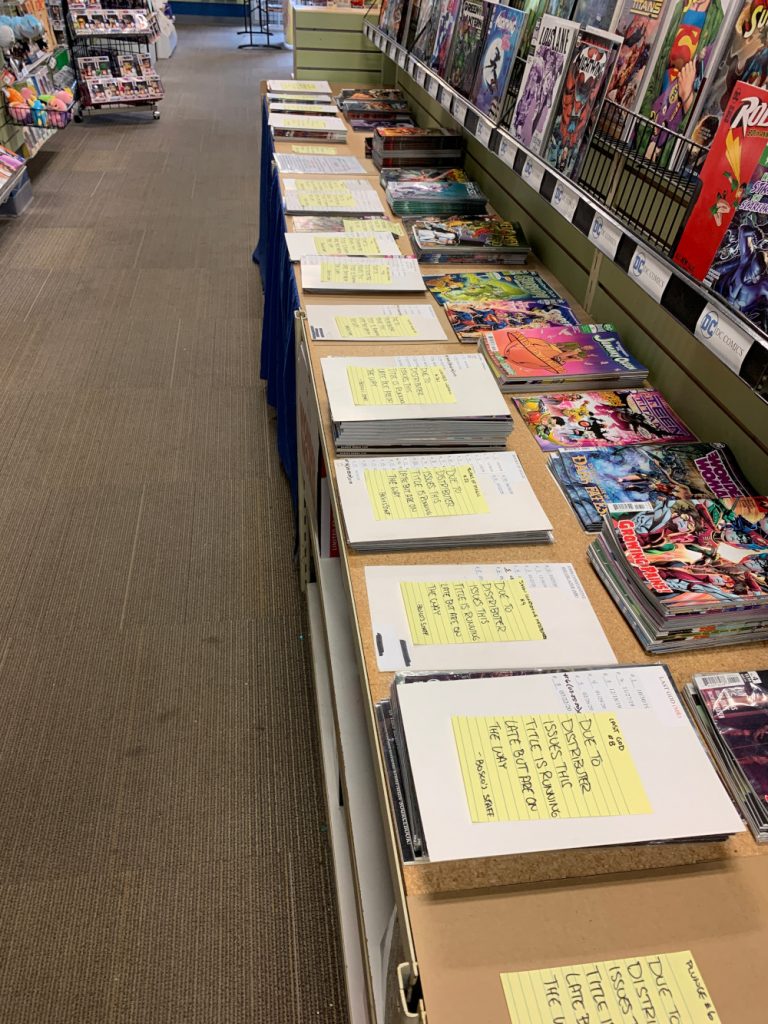
A look at the DC section at my comic shop 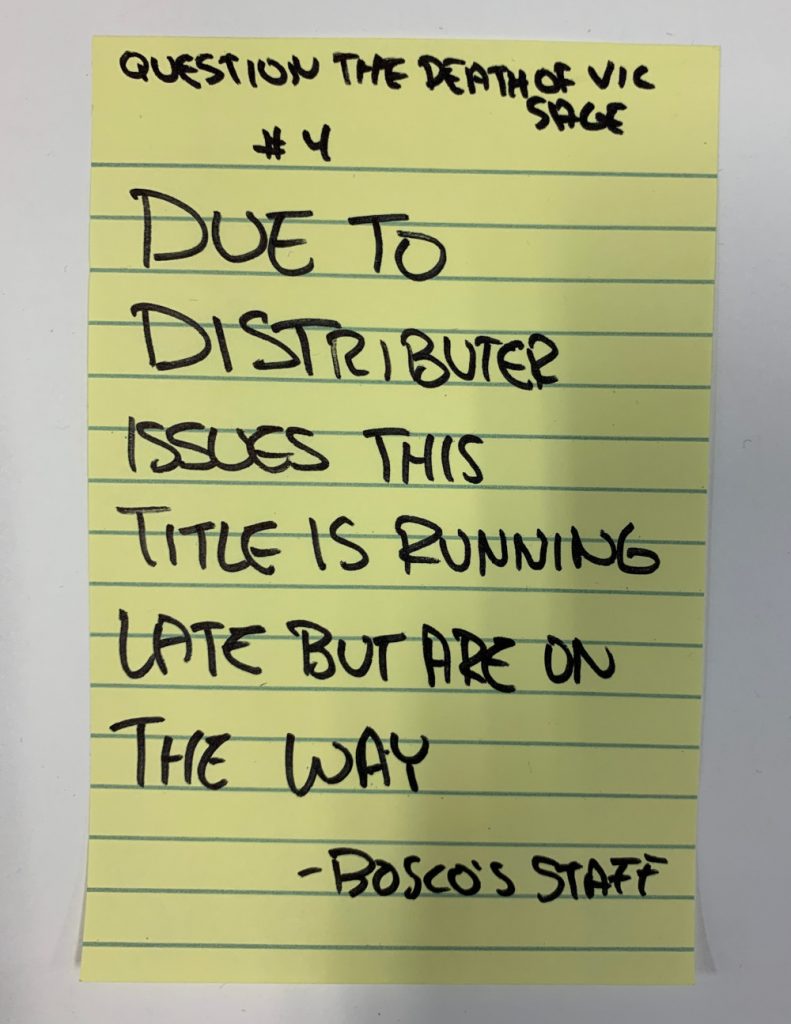
A close up of the note in the DC section at my comic shop
Nothing, that’s what.
It seemed Lunar, the distributor my shop uses for DC’s single issue releases, was late on delivering that week, which is especially unfortunate given DC’s desire to release comics on Tuesdays. This didn’t faze me, of course. In my decades of reading comics, Diamond had been late many, many times at my shop. I live in Alaska. This kind of thing was hardly new. So I bought the comics I already picked up and moved along, eager to read the Plunge finale whenever it arrived.
Fast forward to the following week, and I was met with the same result: no new DC comics. Now, Diamond’s releases were also late that week, so Lunar was hardly alone in this regard, but the other comics were only delayed by a day. By the time I picked up everything else that Thursday, my shop was uncertain if or when they’d see those two weeks of DC releases, with their suspicion being that the following week’s DC comics would arrive before the two absent slates that preceded them.
The good news is they were wrong: all three weeks of DC titles arrived in time for the new comic book day on September 9th, and I acquired everything at that time. My saga had a happy ending. But it did make me wonder how shops were feeling about DC’s new distribution partners, because for those two weeks, my feelings were unenthusiastic, to say the least. It wasn’t just me. Lunar – also known as DCBS, the online comics retail giant – and UCS, which is Midtown Comics under a different name, had generated…let’s call it mixed emotions on social media amongst retailers over their nearly five months in business.
If there’s one thing I know from years of working in social media at my day job, though, it’s that typically the most vocal contingent online are the unhappy people. Conversely, the quietest ones tend to be those who are perfectly fine with their situation. Was that the case here? Is it just squeaky wheels trying to get some grease, or are these new distributors this level of inconsistent everywhere? That’s what we’re going to try and figure out this week.
Let’s start with the broader view. There’s obviously no way I can reach every single retailer to get a sense of how things are working throughout all the shops Lunar and UCS service. But what I can do is share insight gleaned from the places retailers congregate. 1 And apparently the response there has been consistent with social media, because the read on these distributor’s performance over their opening stretch has been inconsistent, at best.
I was told that the general sentiment is that there is no general sentiment. Some have loved the Lunar and UCS experience, raving about the pristine packaging and speed of delivery. It’s easy to buy that, because comparing the look of a package from Lunar to one from Diamond is like matching up the Ritz Carlton to a Motel 6: one just looks a lot more comfortable than the other. And the speed idea lines up with some things I’ve heard in previous conversations with shops, where some get the next week of DC releases so early that they may be a little overzealous in terms of when they get comics out on the stands for purchase.
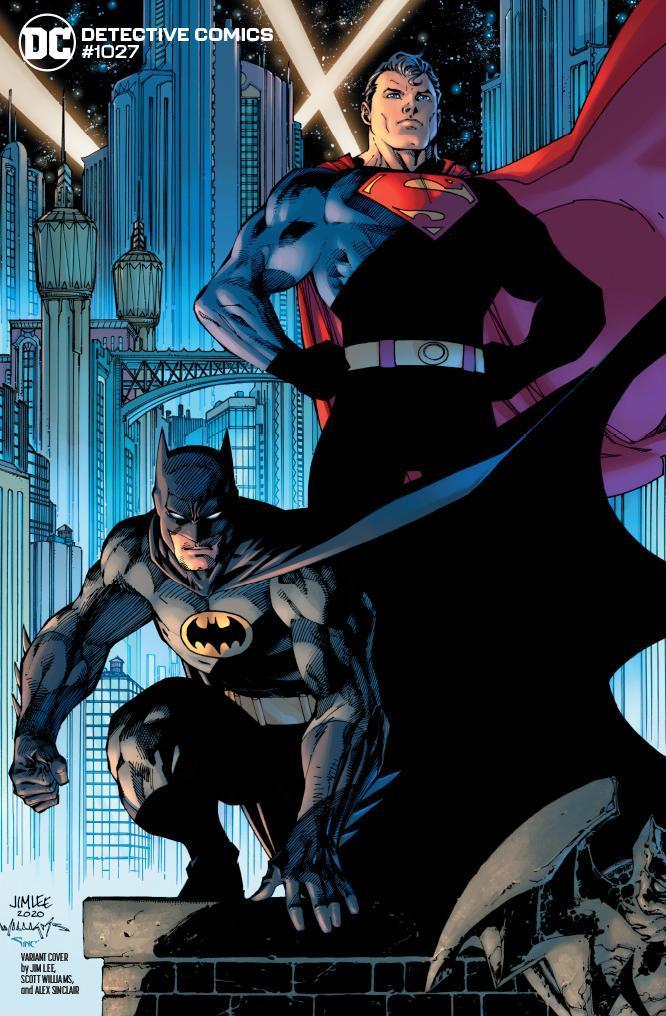
Of course, the flipside is true, as well. With the good comes vitriol to pair with it, as these forums are lined with shops who have seen consistent delays, shipments never showing up on time, damages, and worst of all, poor communication. You can hang with those problems if there’s transparency in the process. When there isn’t, it exacerbates the issue, because then you never know when resolution might come. I’ve mostly heard these issues about UCS before now, but clearly Lunar is not without its faults either. 2
Now, as I noted before, those with bad experiences tend to be more vocal, whether that’s online or not. It’s not surprising to hear the bad side outweighs the good in the online lands of retailers, because distribution is like a utility to comic shops: you only really think about it when something goes wrong. The fact that there’s some level of balance here is encouraging to me. I’d go as far to say that this is about what I’d expect for new distributors who got into the business in the middle of a pandemic with very little lead time: there’s some good, some bad, and a whole lot of no comment in-between.
Naturally, though, I wanted to get some direct perspective from shops. I’ve experienced the plusses and minuses of these new distributors first hand, I’ve heard about it third hand, but getting insight second hand felt essential to understanding the trials and tribulations that come with the Lunar and UCS experience. So I reached out to a collection of shops to find out what’s been happening from the people dealing with this new world order. It was an equal mix of Lunar and UCS stores I heard from, 3 and the result was predictably all over the place as well.
One of the specific items I wanted to check on was how the experience of integrating Lunar and UCS into their standard operating procedures has been. The most commonly used word in response was “seamless,” even though there were often modifiers used in conjunction, like “relatively” or “pretty.” For the most part, shops are used to dealing with other distributors – especially if they sell products in other categories, like toys, games, apparel, and beyond – so that aspect wasn’t bad, although Eitan Manhoff from Cape & Cowl Comics admitted that his tune might be different if he was open for more than curbside service.
Where the problem lies in this regard is with Lunar and UCS’ integration with existing point-of-sale (POS) systems, like Diamond’s ComicSuite or ComicHub. When asked whether this experience has required serious adjustments, Patrick Brower from Challengers Comics + Conversation asked me, “Do you have an option harsher than serious adjustments? This has been, and continues to be, a nightmare scenario.”
As Brower shared, much of the difficulty lies in marrying the code Lunar, UCS and DC use with these POS systems. The problem is the publisher has yet to provide it, making integration effectively impossible on his side. It’s a solvable problem, but one that’s curiously not happening. Brower uses ComicSuite, a nut that hasn’t been cracked quite yet, while others like Comics Conspiracy’s Ryan Higgins and Books with Pictures’ Katie Proctor use ComicHub. That platform has started working quite a bit better as each side endeavors to resolve issues. But as Proctor noted, they’re “still dealing with recurring and novel problems every week,” and all this new work has slowed other necessary development that was happening previously on ComicHub.
“In a perfect world, DC would have given retailers and POS companies through 2020 to get set up and everything working correctly,” Higgins said.
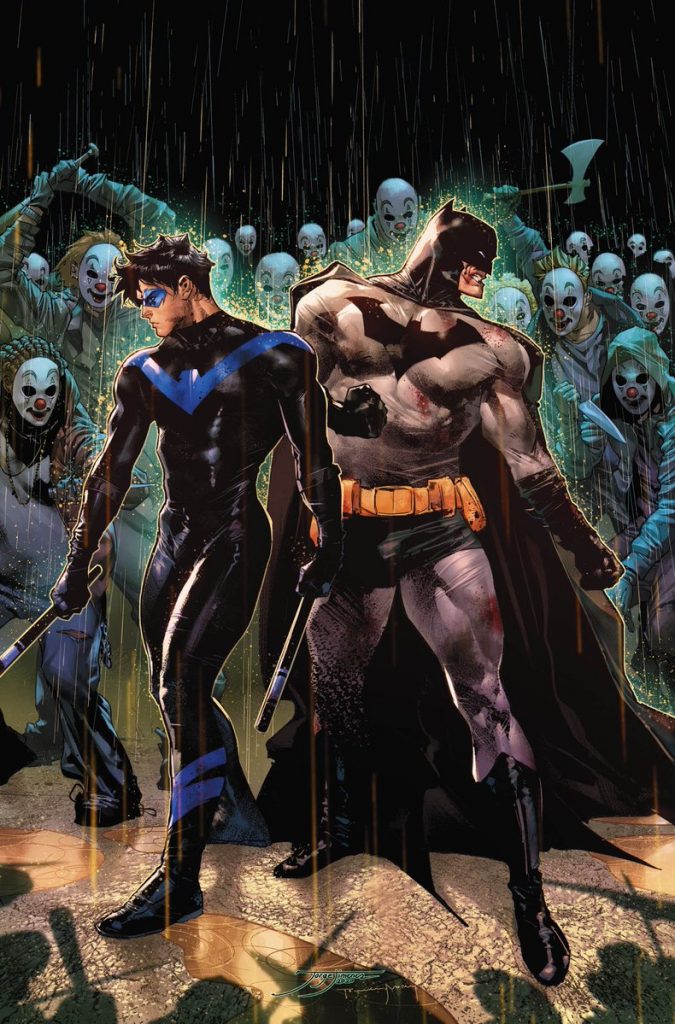
That didn’t happen. Instead, growing pains have come alongside the Lunar and UCS experience since they first launched in late April. While it’s still a rocky road for some on the integration side, I will say this: the overall message was more positive than I expected. These seem like solvable problems, although ones that require perhaps more active cooperation from the distributors and DC itself.
The reliability of comics arriving on time has been similarly inconsistent, but for the most part, that variation is at least within a tight window. Shops can work with that, even if the length of that window ranges. Manhoff admitted his experience has been positive, saying, “knock the shit out of some wood, but we have received some pretty incredible service from Lunar so far. Our shipment usually arrives two to four days early with a fairly insignificant amount of damages or shortages.”
The story has been similar internationally, as Jacob Sareli of Tel Aviv’s Comikaza told me that after a slow start – they saw “a few mistakes” in their first three shipments from UCS – the new distributor improved dramatically once they synced up with Sareli’s freight forwarding partner, with Sareli saying, “everything is working like a clock in terms of shipment times.” That’s promising, because few shops have the degree of difficulty of an Israeli retailer ordering inventory from U.S. based distributors. 4
Unfortunately, delivery times aren’t like clockwork for everyone, and that relatively broad arrival window of two to four days that Manhoff mentioned can be problematic. Proctor said Lunar hasn’t missed a week for her shop, but when the shipment will arrive is a crapshoot. Sometimes it’s Friday. Other times it’s Wednesday, after DC’s much bandied about new Tuesday release date. Because of that unpredictability, Proctor shared “there is no ability to guarantee a timely ‘Tuesday’ release day.” 5 It’d certainly be advantageous to tighten up that window for everyone’s sake, even if it is consistently inconsistent.
Brower has had the toughest time in this regard as well. Challengers is a great name, but they’d prefer it to not be an inspiration to their distribution partners, as Lunar has seemingly taken it. Brower told me that they’ve had multiple instances of being shorted on new releases, with Batman #95 and Justice League #51 not arriving until each title’s following issue was set to be released, and that was only after they properly convinced Lunar that they had been shorted after an extended period of disagreement. 6 These things happen, of course. But then another week they were sent another store’s comics altogether, albeit with quick resolution to that issue that time. It’s been a struggle for the Challengers and DC marriage, with the Labor Day holiday making it even worse.
“This week, 7 like everyone it seems, we got our books very late in the day on Wednesday. And with everything we have to do to log DC books into the system and manage subscriber pulls, they didn’t make it to the shelf until right at close of business on New Release Day, two full days behind the DC on-sale date of Tuesday morning,” Brower shared. “That may have been due to the Monday Federal holiday, but there are at least five of those a year.
“This can’t keep happening.”
Because of all these issues, Brower “absolutely” believes their poor experience with Lunar has negatively impacted their sales. Delayed comics means their customers in a comic shop rich city like Chicago just go elsewhere to buy their books, meaning titles they ordered for pull customers no longer have a home. That’s a direct impact they’ve seen on their bottom line, without even considering that they “have to do so much extra work for the exact same profit margin as before.”
For the most part, other shops don’t believe they’ve either gained or lost sales because of their new distribution partners. Ultimately, a distributor doesn’t really impact sales unless they fail to deliver as Brower has seen. But there are two ways they have impacted the bottom line, and that’s availability of reorders and the condition of the comics that come in.
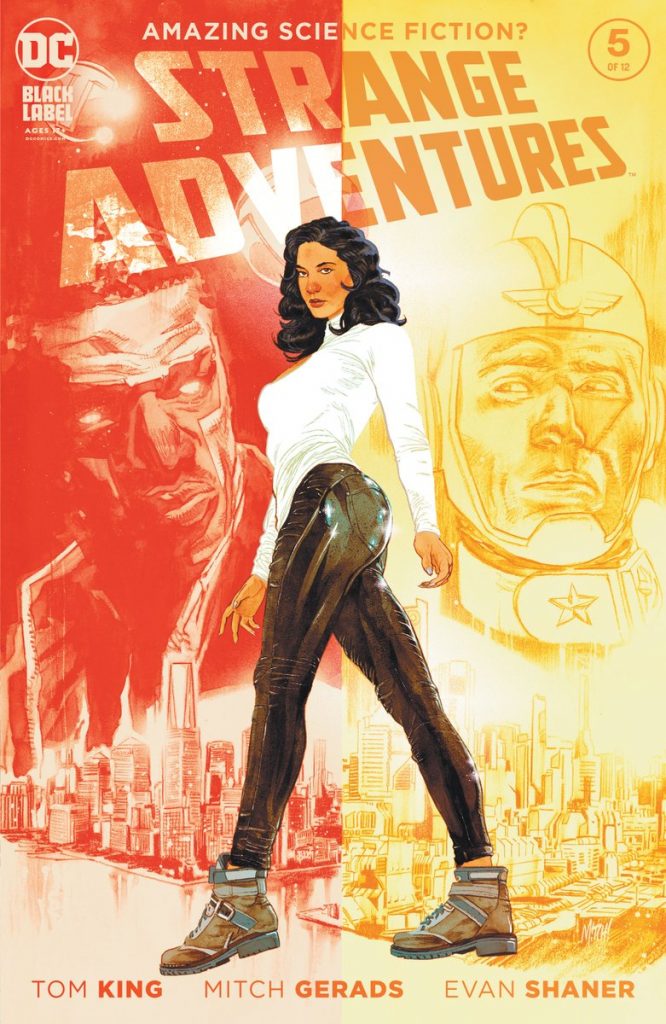
In regards to the former idea, this is built on the idea that, let’s say, Strange Adventures #5 comes out and it lights the world on fire for a shop. Typically, there would be some level of safety stock at the distributor of the first print that allows for quick reorders. That’s apparently not the case anymore – at least in a timely manner – which means that some customers might miss out on a new issue of a comic and just drop it altogether because they have a gap in their purchases. 8 Manhoff says he stays away from trying to acquire new inventory because of that, creating a real cost for him and his customers. But it’s worth noting that Third Eye Comics’ Steve Anderson has been impressed by how quickly DC and its partners have turned around second printings, even if they aren’t as desirable as first prints to some. There’s a balance there.
Related to that idea, Higgins shared that comics damaged by Diamond’s…let’s say laissez-faire packaging and shipping methods would lead to customers dropping titles as well. But in the new world order where Lunar packages comics like they’re the Mona Lisa rather than the Suicide Squad, that’s effectively gone away. As Higgins said, “the packages are packed significantly better than Diamond and that is such a big factor in maintaining sales.” So, in some ways, these new distributors have methods that take away from success, and in others, they help maintain it. Additions and subtractions, but ultimately, that sounds like a net equal to me.
I did want to note one other element: Jetpack Comics’ Ralph DiBernardo told me that DC’s Tuesday new release day actually is helping at his store. Based off what he shared, it sounds like two bites at the comic customer apple is resulting in increased sales. In a time where things are tight, that’s encouraging, even if it can be inconvenient for some.
The final question I asked shops was the biggie in some ways: would they return to buying DC products from Diamond if they could? For a pair of them, it was an easy yes. Brower was lowkey mad at me because I presented such a desirous hypothetical scenario without a way for him to reach it, while Proctor calls dealing with Lunar “a hassle,” especially considering her belief that they weren’t “prepared to be a full-fledged distributor, and they haven’t at any point operated as one.”
The others shared it didn’t really make a difference, if only because Diamond presents similar difficulties at times as well. Or, in the case of Anderson, he basically is just happy with all of them as long as they keep delivering, which they have for Third Eye. 9
“At the end of the day, I don’t think it matters to me who we get our product through, as long as these three factors are there: availability of stock, consistency (i.e. predictable arrival dates), and, of course, discount level,” Anderson said.
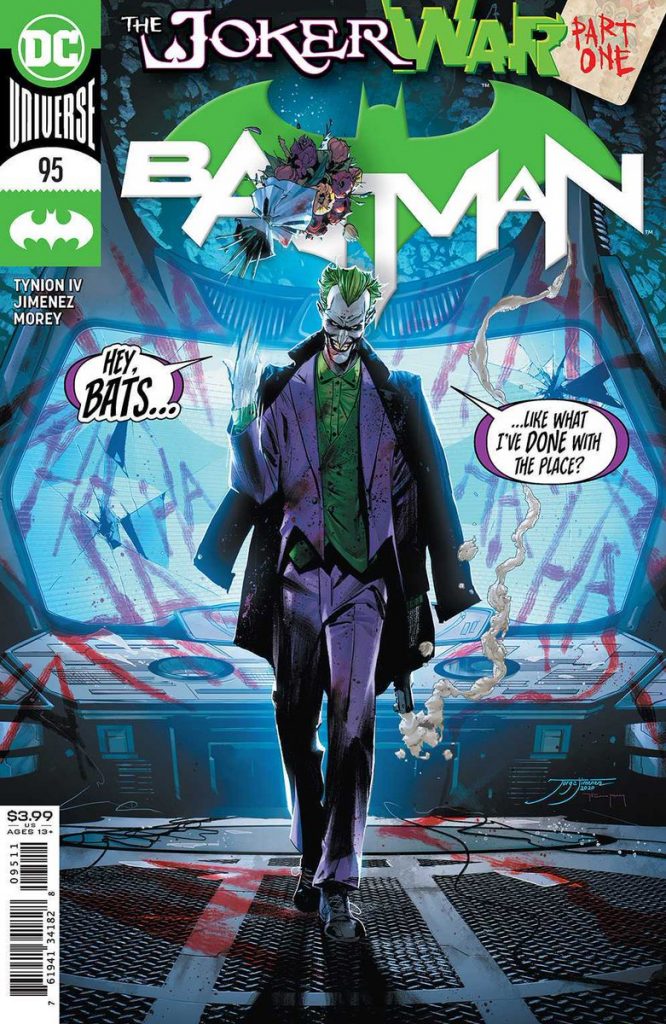
While Manhoff wasn’t enthusiastic about helping out DCBS’ bottom line by ordering through its subsidiary Lunar – and that’s a crucial note, because shops are effectively financially supporting one of their chief competitors in the online comics retailer by ordering through them – he was “hesitant to put all of” his “eggs back in Diamond’s basket.” That’s something both DiBernardo and Higgins agreed with, because they don’t want to leave themselves too single-threaded if a major shift happened. The latter retailer noted something interesting about Diamond on the trade paperback/graphic novel side that underlines why they’re concerned.
“Besides Lunar, with DC leaving Diamond, we’ve started using Penguin Random House for graphic novels reorders. Diamond is taking four plus weeks for reorders – and many titles are regularly out of stock – and PRH gets us the product in two to three days with free shipping,” Higgins told me. “Like many stores, we’re moving our DC, Dark Horse, IDW, Kodansha, and other publishers’ orders over to the book distribution channels.”
That’s a painfully prolonged turnaround window to contend with that Diamond has presented shops with. DiBernardo has had similar problems with Diamond on the single-issue side, and his frustration with the distribution giant nearly rivals Brower’s with DC’s upstart duo. Lost materials, lost revenue, and the loss of faith have dotted his recent Diamond experiences, while UCS has consistently delivered for him and resolved whatever issue that has come up in the process.
This is where an epiphany hit for me, as it might have for you as you were reading this piece. As I worked on this piece, I realized what Lunar and UCS sounded like to me: Diamond Comic Distributors!
The most substantial differences between the two sides – the new school Lunar and UCS versus the wily veteran Diamond – are limited, with the newcomers packaging product far better 10 while Diamond is superior at integrating into systems. 11 The rest of it? The inconsistent delivery dates, the unpredictability, and the polarizing response from retailers? Don’t those sound like Diamond as well?
Now, it’s clear in some cases – namely Brower’s, but assuredly others as well – Lunar and UCS have a whole lot to sort out. Their lack of responsiveness and responsibility when issues arise is deeply problematic, and they clearly need to resolve all integration issues they might have with existing POS systems to make retailers’ lives easier. But those are solvable problems – and it’s worth remembering they’ve been on this job for less than five months still – if they choose to solve them. That’s the big question: will they do so, and in a way that doesn’t kill shops out of stress or poor performance?
There’s no greater anecdote about the state of direct market distribution than the fact that the second week my shop’s DC releases were delayed, non-DC titles were as well because Diamond’s shipment didn’t arrive on time either. Right now, it sounds to me like Lunar and UCS are Diamond minus 38 years of experience, and that in a time of great turmoil like the one we’re in, it sometimes is easier to work with the devil you know rather than the one you don’t. That’s understandable, but they’re still both devils in their own way.
Lunar and UCS have undoubtedly been imperfect performers so far, with flaws that harm comic shops around the country. Unfortunately, that just means in terms of direct market distribution, they fit right in, for better or worse.
Namely varying forums and groups they partake in.↩
Especially given my personal experience.↩
With Penguin Random House filling needs for trades and graphic novels.↩
In case you’re wondering, Sareli orders from UCS instead of Diamond UK because incredibly, it’s more expensive to get inventory from the geographically closer alternative than the United States. Comics!↩
She did add that the packing quality is exceptional, though!↩
It was a whole thing when it really shouldn’t have been.↩
Labor Day week.↩
I have 100% been there.↩
Worth celebrating: Anderson has to be the happiest retailer I’ve ever met.↩
While being owned by competitors, of course.↩
At least in part because they effectively built the system from which everything else works off of.↩
